2015 Speakers
Keynote Speakers
Monday, November 2, 2015; 8:45am-9:30am
 Michael S. Wolf, PhD MPH is a health services researcher and cognitive-behavioral scientist with expertise in health literacy, risk communication, medication safety and adherence. For the past 14 years, he has studied health literacy-related issues, spanning the extent and association of limited literacy with various health outcomes, its meaning and measurement, and the development and testing of practical and scalable interventions to improve health communication, behavior, and subsequent health outcomes. He has 160+ health literacy-related publications; more than 70 of these focus specifically on medication communication and behavior. To date, he has served on multiple national panels on health literacy, aging, medication safety, drug labeling, and chronic disease self-management, and now actively leads numerous federal and private-funded studies pertaining to literacy skills, medication understanding, and adherence with colleagues across the country, Europe and Australia. Of note, he helped write the California State Board of Pharmacy and New York City bills on patient-centered drug labeling, which included both literacy and language concerns. His work in patient safety has led to numerous national awards, including the National Patient Safety Foundation Health Literacy Award and a J. William Fulbright Distinguished Faculty Scholar Award to the United Kingdom. He is the Founder and Co-Director of the Health Literacy and Learning Program (HeLP); a collaboration between faculty within the Schools of Medicine and Education and Social Policy at Northwestern. As Associate Division Chief for Research in General Internal Medicine, he leads a large research agenda in health literacy, communication & behavior.
Michael S. Wolf, PhD MPH is a health services researcher and cognitive-behavioral scientist with expertise in health literacy, risk communication, medication safety and adherence. For the past 14 years, he has studied health literacy-related issues, spanning the extent and association of limited literacy with various health outcomes, its meaning and measurement, and the development and testing of practical and scalable interventions to improve health communication, behavior, and subsequent health outcomes. He has 160+ health literacy-related publications; more than 70 of these focus specifically on medication communication and behavior. To date, he has served on multiple national panels on health literacy, aging, medication safety, drug labeling, and chronic disease self-management, and now actively leads numerous federal and private-funded studies pertaining to literacy skills, medication understanding, and adherence with colleagues across the country, Europe and Australia. Of note, he helped write the California State Board of Pharmacy and New York City bills on patient-centered drug labeling, which included both literacy and language concerns. His work in patient safety has led to numerous national awards, including the National Patient Safety Foundation Health Literacy Award and a J. William Fulbright Distinguished Faculty Scholar Award to the United Kingdom. He is the Founder and Co-Director of the Health Literacy and Learning Program (HeLP); a collaboration between faculty within the Schools of Medicine and Education and Social Policy at Northwestern. As Associate Division Chief for Research in General Internal Medicine, he leads a large research agenda in health literacy, communication & behavior.
Tuesday, November 3, 2015; 8:45am-9:45am
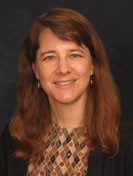 Cindy Brach, M.P.P., is a Senior Health Policy Researcher at the Agency for Healthcare Research and Quality (AHRQ). She conducts and oversees research on health literacy, cultural and linguistic competence, quality improvement, Medicaid, and the State Children’s Health Insurance Program. Cindy leads AHRQ’s health literacy activities, coordinating the Agency’s work in developing measures, improving the evidence base, and creating implementation tools. Cindy’s health literacy projects have included the development of the AHRQ Health Literacy Universal Precautions Toolkit, CAHPS® Item Sets for Addressing Health Literacy, AHRQ Informed Consent and Authorization Toolkit for Minimal Risk Research, and the Patient Education Materials Assessment Tool (PEMAT). She serves on the Institute of Medicine’s Roundtable on Health Literacy, where she led an effort to define the attributes of a health literate organization. Cindy is also AHRQ’s point person for cultural and linguistic competence. Cindy has served on the National Project Advisory Committee to enhance the National Standards for Culturally and Linguistically Appropriate Services, on HHS’ Language Access Steering Committee, and the DiversityRx National Advisory Group. In addition to overseeing the development of the TeamSTEPPS Limited English Proficiency (LEP) Module, Cindy recently commissioned and co-authored the new Re-engineered Discharge Toolkit to address the needs of diverse patients. Cindy’s work on Medicaid and SCHIP notably includes overseeing the five-year evaluation of the CHIPRA Quality Demonstration Grant Program. She also led the Child Health Insurance Research Initiative (CHIRI™) a public-private partnership. Cindy has also worked on improving chronic care, overseeing the development of Integrating Chronic Care and Business Strategies in the Safety Net: A Toolkit for Primary Care Practices and Clinics, and co-authoring The Practice Facilitation Handbook: Training Modules for New Facilitators and Their Trainers.
Cindy Brach, M.P.P., is a Senior Health Policy Researcher at the Agency for Healthcare Research and Quality (AHRQ). She conducts and oversees research on health literacy, cultural and linguistic competence, quality improvement, Medicaid, and the State Children’s Health Insurance Program. Cindy leads AHRQ’s health literacy activities, coordinating the Agency’s work in developing measures, improving the evidence base, and creating implementation tools. Cindy’s health literacy projects have included the development of the AHRQ Health Literacy Universal Precautions Toolkit, CAHPS® Item Sets for Addressing Health Literacy, AHRQ Informed Consent and Authorization Toolkit for Minimal Risk Research, and the Patient Education Materials Assessment Tool (PEMAT). She serves on the Institute of Medicine’s Roundtable on Health Literacy, where she led an effort to define the attributes of a health literate organization. Cindy is also AHRQ’s point person for cultural and linguistic competence. Cindy has served on the National Project Advisory Committee to enhance the National Standards for Culturally and Linguistically Appropriate Services, on HHS’ Language Access Steering Committee, and the DiversityRx National Advisory Group. In addition to overseeing the development of the TeamSTEPPS Limited English Proficiency (LEP) Module, Cindy recently commissioned and co-authored the new Re-engineered Discharge Toolkit to address the needs of diverse patients. Cindy’s work on Medicaid and SCHIP notably includes overseeing the five-year evaluation of the CHIPRA Quality Demonstration Grant Program. She also led the Child Health Insurance Research Initiative (CHIRI™) a public-private partnership. Cindy has also worked on improving chronic care, overseeing the development of Integrating Chronic Care and Business Strategies in the Safety Net: A Toolkit for Primary Care Practices and Clinics, and co-authoring The Practice Facilitation Handbook: Training Modules for New Facilitators and Their Trainers.
Cindy is a frequent speaker at national conferences and on Webinars, and has published in journals such as: American Journal of Health Behavior, Health Affairs, Journal of General Internal Medicine, , Journal for Healthcare Quality, Journal of Health Care for the Poor and Underserved, Journal of Health Communication, Medical Care, Medical Research and Review, and Pediatrics. Cindy’s earlier experience includes serving as a mental health policy research director, a welfare reform consultant and provider of technical assistance, a state-level administrator, and a municipal policy analyst. Cindy received her Master of Public Policy degree from the University of California, Berkeley, where she was also advanced to Ph.D. candidacy.
————————————————————————————————————————————————
Invited Panels:
Monday November 2, 2015; 11:00am-12:30pm
Panel A: Addressing Health Literacy in the Collection and Use of Patient Reported Data and Patient Reported Outcomes in Research
Moderator: Russell Rothman
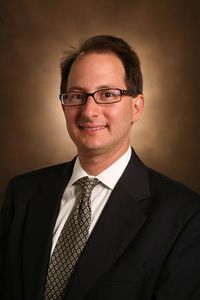 Russell Rothman, MD, MPP is an Associate Professor of Internal Medicine and Pediatrics at Vanderbilt, and serves as the Director of the Vanderbilt Center for Health Services Research. Dr. Rothman also currently serves as Chief of the Vanderbilt Med/Peds Section, Co-Director of the Vanderbilt Community Engaged Research Core of the Vanderbilt Institute of Clinical and Translational Research (VICTR), and the Associate Director of the Vanderbilt Center for Diabetes Translational Research. Dr. Rothman’s current research focuses on improving care for adult and pediatric patients with diabetes, obesity and other chronic diseases. He has been funded by the NIH and other sources to examine the role of health communication, literacy and numeracy in diabetes and obesity management and prevention.
Russell Rothman, MD, MPP is an Associate Professor of Internal Medicine and Pediatrics at Vanderbilt, and serves as the Director of the Vanderbilt Center for Health Services Research. Dr. Rothman also currently serves as Chief of the Vanderbilt Med/Peds Section, Co-Director of the Vanderbilt Community Engaged Research Core of the Vanderbilt Institute of Clinical and Translational Research (VICTR), and the Associate Director of the Vanderbilt Center for Diabetes Translational Research. Dr. Rothman’s current research focuses on improving care for adult and pediatric patients with diabetes, obesity and other chronic diseases. He has been funded by the NIH and other sources to examine the role of health communication, literacy and numeracy in diabetes and obesity management and prevention.
Speakers:
 Susan J. Shaw, PhD is a medical anthropologist specializing in ethnicity, health disparities, social movements, and the political economy of health in the United States. Her book, Governing How We Care: Contesting Community and Defining Difference in U.S. Public Health Programs, analyzes local struggles over community health as a window onto the complex meanings of governance, citizenship, and identity formation. Drawing on ethnographic research conducted over six years in a New England city, this book places community health, a critically understudied area, at the center of analyses of contemporary transformations in governing. In domains that include HIV prevention, cultural differences in primary health care, chronic disease, and health care reform, her work explores the multiple and unanticipated effects of contemporary neoliberal policies in the U.S. inner city. She examines the ways in which community responses to marginalization can lead to new kinds of identities formed in part through collective struggles around health issues. Dr. Shaw recently concluded a four-year, NIH-funded study of cultural differences, health literacy, and chronic disease management among four ethnic groups in the northeastern U.S. She is currently PI on the RxHL study, a four-year follow-up study that looks at how people with low health literacy cope with increasing costs and changes in their medication coverage (R01HL120907: Medication Adherence, Health Literacy and Cultural Health Beliefs in a Massachusetts Community Health Center).
Susan J. Shaw, PhD is a medical anthropologist specializing in ethnicity, health disparities, social movements, and the political economy of health in the United States. Her book, Governing How We Care: Contesting Community and Defining Difference in U.S. Public Health Programs, analyzes local struggles over community health as a window onto the complex meanings of governance, citizenship, and identity formation. Drawing on ethnographic research conducted over six years in a New England city, this book places community health, a critically understudied area, at the center of analyses of contemporary transformations in governing. In domains that include HIV prevention, cultural differences in primary health care, chronic disease, and health care reform, her work explores the multiple and unanticipated effects of contemporary neoliberal policies in the U.S. inner city. She examines the ways in which community responses to marginalization can lead to new kinds of identities formed in part through collective struggles around health issues. Dr. Shaw recently concluded a four-year, NIH-funded study of cultural differences, health literacy, and chronic disease management among four ethnic groups in the northeastern U.S. She is currently PI on the RxHL study, a four-year follow-up study that looks at how people with low health literacy cope with increasing costs and changes in their medication coverage (R01HL120907: Medication Adherence, Health Literacy and Cultural Health Beliefs in a Massachusetts Community Health Center).
 Dr. Rebecca Sudore, MD is an Associate Professor In-Residence in the Division of Geriatrics. She is dedicated to helping vulnerable older adults and their families make informed medical decisions, especially for advance care planning and at the end-of-life.
Dr. Rebecca Sudore, MD is an Associate Professor In-Residence in the Division of Geriatrics. She is dedicated to helping vulnerable older adults and their families make informed medical decisions, especially for advance care planning and at the end-of-life.
Rebecca’s inspiration for her research and her expertise in tailoring health education materials to patients with limited health literacy derives from her work with vulnerable populations at homeless clinics; San Francisco General Hospital; the Geriatrics, Palliative Care and Hospice Services at the San Francisco VA; and the adult literacy program through the San Francisco Library.
 William Trick, MD is an Internist and the Director of the Collaborative Research Unit (CRU) for the Cook County Health & Hospitals System. The CRU’s informatics team develops methods for capturing clinical data and integrating primary data collection with data acquired from the electronic health record. An area of particular interest and an ongoing challenge is to capture patient-reported outcome measures during clinical encounters. The CRU has developed touch-screen bilingual audio-computer assisted self-interview (ACASI) software systems to capture patient-reported data from a medically under-served English and Spanish-speaking patient population. We hope to someday incorporate these innovations into the clinical encounter.
William Trick, MD is an Internist and the Director of the Collaborative Research Unit (CRU) for the Cook County Health & Hospitals System. The CRU’s informatics team develops methods for capturing clinical data and integrating primary data collection with data acquired from the electronic health record. An area of particular interest and an ongoing challenge is to capture patient-reported outcome measures during clinical encounters. The CRU has developed touch-screen bilingual audio-computer assisted self-interview (ACASI) software systems to capture patient-reported data from a medically under-served English and Spanish-speaking patient population. We hope to someday incorporate these innovations into the clinical encounter.
 Drenna Waldrop-Valverde, PhD, Associate Professor of Nursing, is a licensed psychologist specializing in neuropsychology. She is the Director of the Center for Neurocognitive Studies, a P30 NINR Center of Excellence, in the Nell Hodgson Woodruff School of Nursing at Emory University. Her research focuses on the effects of health literacy and cognitive functioning on the continuum of care and disease self-management among persons living with HIV/AIDS. Dr. Waldrop-Valverde’s current study focuses on health literacy as a contributor to disparities in HIV clinical outcomes.
Drenna Waldrop-Valverde, PhD, Associate Professor of Nursing, is a licensed psychologist specializing in neuropsychology. She is the Director of the Center for Neurocognitive Studies, a P30 NINR Center of Excellence, in the Nell Hodgson Woodruff School of Nursing at Emory University. Her research focuses on the effects of health literacy and cognitive functioning on the continuum of care and disease self-management among persons living with HIV/AIDS. Dr. Waldrop-Valverde’s current study focuses on health literacy as a contributor to disparities in HIV clinical outcomes.
————————————————————————————————————————————————
Panel B: Examining Health Literacy Definitions, Causal Models and Measurement from a Patient-Centered Perspective
Moderator: Lauren McCormack
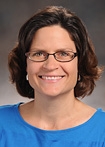 Lauren McCormack, PhD, MSPH, focuses on promoting informed decision making through effective communication and measuring and evaluating the impact of health-related information on knowledge, attitudes, and behaviors. Dr. McCormack has studied public health topics including cancer, diabetes, and developmental disabilities and examined health insurance decision making. For nearly two decades, she has led or participated in studies for AHRQ, CDC, NCI, FDA, CMS, and RWJF. Dr. McCormack has presented her findings at national conferences and published nearly 40 peer-reviewed articles in the following journals: the Journal of Health Communication, Health Services Research, Medical Care, Health Affairs, Medical Decision Making,The Patient: Patient-Centered Outcomes Research, the Journal of Cancer Education, the Journal of Consumer Affairs, and Health Education Research. She is an associate editor of the RTI Press and was a guest editor of a 2010 special health literacy issue of the Journal of Health Communication.
Lauren McCormack, PhD, MSPH, focuses on promoting informed decision making through effective communication and measuring and evaluating the impact of health-related information on knowledge, attitudes, and behaviors. Dr. McCormack has studied public health topics including cancer, diabetes, and developmental disabilities and examined health insurance decision making. For nearly two decades, she has led or participated in studies for AHRQ, CDC, NCI, FDA, CMS, and RWJF. Dr. McCormack has presented her findings at national conferences and published nearly 40 peer-reviewed articles in the following journals: the Journal of Health Communication, Health Services Research, Medical Care, Health Affairs, Medical Decision Making,The Patient: Patient-Centered Outcomes Research, the Journal of Cancer Education, the Journal of Consumer Affairs, and Health Education Research. She is an associate editor of the RTI Press and was a guest editor of a 2010 special health literacy issue of the Journal of Health Communication.
Speakers:
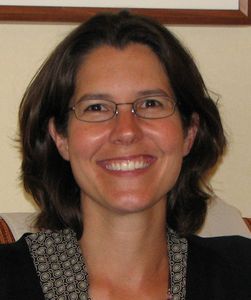 Linda Aldoory, PhD studies health communication, specifically women’s health, and gender and diversity in health public relations. Her current research focuses on how public health campaigns and mass media affect health attitudes and decision making for women and adolescents. She has been published in the top ranked journals such as Journal of Communication and Health Communication, and is a research consultant for the CDC, FDA, and the Department of Homeland Security. Dr. Aldoory is former editor of the Journal of Public Relations Research. She is also a fellow in the university’s Academy of Excellence in Teaching and Learning and a former Lilly Fellow for Teaching Excellence. Courses she typically teaches include public relations theory and writing, health communication, and qualitative research methods. Current research projects are multi-methodological and are working towards developing theory to explain the ability of public health campaigns to improve health decision making. She is analyzing the cultural and socioeconomic factors that impact women’s and teen’s health and everyday lives.
Linda Aldoory, PhD studies health communication, specifically women’s health, and gender and diversity in health public relations. Her current research focuses on how public health campaigns and mass media affect health attitudes and decision making for women and adolescents. She has been published in the top ranked journals such as Journal of Communication and Health Communication, and is a research consultant for the CDC, FDA, and the Department of Homeland Security. Dr. Aldoory is former editor of the Journal of Public Relations Research. She is also a fellow in the university’s Academy of Excellence in Teaching and Learning and a former Lilly Fellow for Teaching Excellence. Courses she typically teaches include public relations theory and writing, health communication, and qualitative research methods. Current research projects are multi-methodological and are working towards developing theory to explain the ability of public health campaigns to improve health decision making. She is analyzing the cultural and socioeconomic factors that impact women’s and teen’s health and everyday lives.
 Donald Rubin, PhD is professor emeritus in the Departments of Speech Communication and Language and Literacy Education and in the Program in Linguistics. He served as Head of the Speech Communication Department (1994-2000) and Faculty Fellow at the University System of Georgia (2000-2001). Rubin edited the National Communication Association journal Communication Education (2003-2006). He is presently senior scientist at UGA’s Center for Health and Risk Communication and adjunct professor at Emory University’s Candler School of Theology (English for Academic Purposes program). He is also academic director of UGA’s study abroad program in Communication, Health Culture/Sustainability in Northern Territory and eastern Queensland, Australia. Rubin’s current research projects cross three themes: (1) health literacy, especially interactive or interpersonal health literacy; (2) student learning outcomes accruing from study abroad; and (3) evaluational reactions to non-native speakers of English; including the impact of those responses on assessment processes. He has served as principal investigator or co-investigator on grants and contracts funded by such agencies as FIPSE, NCI, NIA, CDC, International Research Studies (ED), and the Legacy Foundation. His co-edited volume (co-edited by UGA PhD alum Ann Neville Miller) Health Communication and Faith Communities is forthcoming from Hampton Press.
Donald Rubin, PhD is professor emeritus in the Departments of Speech Communication and Language and Literacy Education and in the Program in Linguistics. He served as Head of the Speech Communication Department (1994-2000) and Faculty Fellow at the University System of Georgia (2000-2001). Rubin edited the National Communication Association journal Communication Education (2003-2006). He is presently senior scientist at UGA’s Center for Health and Risk Communication and adjunct professor at Emory University’s Candler School of Theology (English for Academic Purposes program). He is also academic director of UGA’s study abroad program in Communication, Health Culture/Sustainability in Northern Territory and eastern Queensland, Australia. Rubin’s current research projects cross three themes: (1) health literacy, especially interactive or interpersonal health literacy; (2) student learning outcomes accruing from study abroad; and (3) evaluational reactions to non-native speakers of English; including the impact of those responses on assessment processes. He has served as principal investigator or co-investigator on grants and contracts funded by such agencies as FIPSE, NCI, NIA, CDC, International Research Studies (ED), and the Legacy Foundation. His co-edited volume (co-edited by UGA PhD alum Ann Neville Miller) Health Communication and Faith Communities is forthcoming from Hampton Press.
Mary Roach
Marilyn Schapira
————————————————————————————————————————————————
Monday, November 2, 2015; 2:00pm-3:30pm
Panel C: Health Literacy and people with intellectual disabilities, unique perspectives and common ground
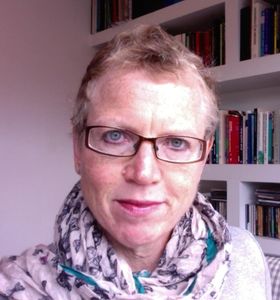 Deborah Chinn, PhD worked for many years as a community-based clinical psychologist with people with intellectual disabilities before becoming a full time health service researcher. Involvement in a community health needs assessment developed her interest in health literacy and led to her development of a new health literacy scale (AAHLS – All Aspects of Health Literacy Scale). Her current research, funded by the UK National Institute of Health Research (NIHR) brings together her clinical experience and her health literacy scholarship to explore what health literacy means for people with learning disabilities; how they are are offered health information and how they make use of it.
Deborah Chinn, PhD worked for many years as a community-based clinical psychologist with people with intellectual disabilities before becoming a full time health service researcher. Involvement in a community health needs assessment developed her interest in health literacy and led to her development of a new health literacy scale (AAHLS – All Aspects of Health Literacy Scale). Her current research, funded by the UK National Institute of Health Research (NIHR) brings together her clinical experience and her health literacy scholarship to explore what health literacy means for people with learning disabilities; how they are are offered health information and how they make use of it.
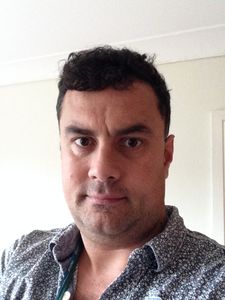 Warren Oldreive, MSc In clinical practice I have worked with a spectrum of children and adults with a range of complex communication needs arising from: dementia; intellectual disabilities; physical impairments, stroke and mental health concerns. I have worked in a range of roles comprising a paid carer, Assistant Psychologist and for the last fourteen years a Speech and Language Therapist working with a range of adults with Intellectual disabilities in a variety of community and educational settings.
Warren Oldreive, MSc In clinical practice I have worked with a spectrum of children and adults with a range of complex communication needs arising from: dementia; intellectual disabilities; physical impairments, stroke and mental health concerns. I have worked in a range of roles comprising a paid carer, Assistant Psychologist and for the last fourteen years a Speech and Language Therapist working with a range of adults with Intellectual disabilities in a variety of community and educational settings.
I am continually faced with the challenge of making information accessible to a range of people who challenge traditional service provision. The needs are diverse and the information required can be complex and challenging. This work has resulted in the creation of a range of ideas, models and theories that have been documented in a several international peer reviewed publications and presentations at both national and international conferences. I have also developed a range of contacts in related academic and clinical organizations and have an active interest in wider research possibilities, specifically in: the creation of accessible web resources; implications of literacy needs and linguistic and auditory memory needs. I have worked actively with NHS England to inform the creation of the Information Standard which is a new national standard for information provision that all NHS trusts will be expected to attain and have been invited by NHS England to speak at the inaugural seminar formally introducing the Information Standard at the latest NHS Innovation EXPO event.
 Mary Waight, PhD Since qualifying as an Occupational Therapist in 1985 I have worked with both children and adults with disabilities in both the UK and Africa. For over 23 years my work has been predominately in the field of intellectual disabilities, mainly with people and their family/carers across a range of community settings.
Mary Waight, PhD Since qualifying as an Occupational Therapist in 1985 I have worked with both children and adults with disabilities in both the UK and Africa. For over 23 years my work has been predominately in the field of intellectual disabilities, mainly with people and their family/carers across a range of community settings.
One strand of my work has been looking at ways to make information accessible. In my PhD research I developed various tools to look at how people with intellectual disabilities understand the concept of mental health this included not only using focus groups to examine examples of easy read information but using this format to relay the results of the research for validation with people with intellectual disabilities.
Following my PhD I have been working jointly with Warren Oldreive, Speech and Language therapist to explore different ways of enabling people to understand information principally using computer programs. This arose out of clinical work and developed based on client need.
We have been widely published in peer review journals and presented at a variety of conferences both professional and clinical. We have been part of a national project in NHS England looking at accessible information standards and were a pilot site prior to the launch of the new standards.
 Beth Marks, PhD is a Research Associate Professor in the Department of Disability and Human Development and Associate Director for Research in the Rehabilitation Research and Training Center on Aging with Developmental Disabilities. Beth directs research programs on empowerment and advancement of persons with disabilities. She has published numerous articles and books related to health promotion, health advocacy, and primary health care for people with disabilities. She co-produced with Bronwynne Evans, RN, PhD, FAAN a film entitled “Open the Door, Get ‘Em a Locker: Educating Nursing Students with Disabilities.” She has also authored two books published in 2010 entitled “Health Matters: The Exercise and Nutrition Health Education Curriculum for People with Developmental Disabilities” and “Health Matters for People with Developmental Disabilities: Creating a Sustainable Health Promotion Program.”
Beth Marks, PhD is a Research Associate Professor in the Department of Disability and Human Development and Associate Director for Research in the Rehabilitation Research and Training Center on Aging with Developmental Disabilities. Beth directs research programs on empowerment and advancement of persons with disabilities. She has published numerous articles and books related to health promotion, health advocacy, and primary health care for people with disabilities. She co-produced with Bronwynne Evans, RN, PhD, FAAN a film entitled “Open the Door, Get ‘Em a Locker: Educating Nursing Students with Disabilities.” She has also authored two books published in 2010 entitled “Health Matters: The Exercise and Nutrition Health Education Curriculum for People with Developmental Disabilities” and “Health Matters for People with Developmental Disabilities: Creating a Sustainable Health Promotion Program.”
————————————————————————————————————————————————
Monday, November 2, 2015; 4:00pm-5:30pm
Panel D: Examining how socio-demographic factors impact the relationship of literacy, numeracy, and digital problem solving with health (PIAAC)
Moderator: Jaleh Soroui
Speakers:
Ian Bennett, MD carries out multi-disciplinary research in the area of social determinants of disparities in maternal-child and reproductive health with particular focus on perinatal depression. Through studies of low income women in pregnancy and postpartum Dr. Bennett and his colleagues have shown that the risk of emotional distress is higher among women with low literacy in their native language (either English or Spanish) than among women with higher literacy. They have also shown that low income women face major disruptions in their established depression treatment if they become pregnant/begin care for pregnancy. His current work targets the development of sustainable interventions to improve the delivery of perinatal depression services in primary care. He has been recognized as a “Health Disparities Scholar” by the National Center on Minority Health and Health Disparities, National Institutes of Health for his work.
 Iris Feinberg, a PhD candidate in Health Promotion and Behavior at the School of Public Health at Georgia State University (GSU) specializing in Health Literacy, has an extensive professional and philanthropic background in helping individuals find and use information to make well-informed decisions. She is currently the Assistnat Director of the Adult Literacy Research Center at GSU. Ms. Feinberg was the founder and CEO of The Trillium Group, Ltd., a medical claims processing company serving medical clinics and physicians in the Southeastern United States from 1989-2010; she is currently on the boards of Literacy Action, Inc., Georgians for a Healthy Future and the Georgia Health Literacy Alliance. Prior health care related philanthropic work includes service on the State of Georgia Health Strategies Council and the Clinton Administration’s Administrative Health Care Task Force.
Iris Feinberg, a PhD candidate in Health Promotion and Behavior at the School of Public Health at Georgia State University (GSU) specializing in Health Literacy, has an extensive professional and philanthropic background in helping individuals find and use information to make well-informed decisions. She is currently the Assistnat Director of the Adult Literacy Research Center at GSU. Ms. Feinberg was the founder and CEO of The Trillium Group, Ltd., a medical claims processing company serving medical clinics and physicians in the Southeastern United States from 1989-2010; she is currently on the boards of Literacy Action, Inc., Georgians for a Healthy Future and the Georgia Health Literacy Alliance. Prior health care related philanthropic work includes service on the State of Georgia Health Strategies Council and the Clinton Administration’s Administrative Health Care Task Force.
Ms. Feinberg is developing an academic career that focuses on understanding and enhancing health literacy through behavior change interventions. She was the lead researcher on a GSU/CDC Seed Grant study in 2012-2013 that studied communications between patients with low health literacy and health care providers. Ms. Feinberg was awarded a commission from the American Institutes for Research (National Center for Education Statistics) to study how cognitive and non-cognitive factors affect health information seeking behaviors through data collected in the Program for the International Assessment of Adult Competencies (PIAAC), a household study of adults in 29 countries conducted under the auspices of the OECD.
Emily Pawlowski
 Esther Prins, PhD is an Associate Professor of Adult Education at Penn State and Co-Director of the Goodling Institute for Research in Family Literacy and Institute for the Study of Adult Literacy. Her research analyzes adult education—particularly adult and family literacy—through a critical, sociocultural lens. Her recent research focuses on adult literacy and health disparities. Dr. Prins’s scholarship has been published in journals such as PLOS ONE, American Educational Research Journal, Teachers College Record, and Adult Education Quarterly. She is the recipient of the 2010 Imogene Okes Award for Outstanding Research in Adult Education from the American Association for Adult and Continuing Education.
Esther Prins, PhD is an Associate Professor of Adult Education at Penn State and Co-Director of the Goodling Institute for Research in Family Literacy and Institute for the Study of Adult Literacy. Her research analyzes adult education—particularly adult and family literacy—through a critical, sociocultural lens. Her recent research focuses on adult literacy and health disparities. Dr. Prins’s scholarship has been published in journals such as PLOS ONE, American Educational Research Journal, Teachers College Record, and Adult Education Quarterly. She is the recipient of the 2010 Imogene Okes Award for Outstanding Research in Adult Education from the American Association for Adult and Continuing Education.
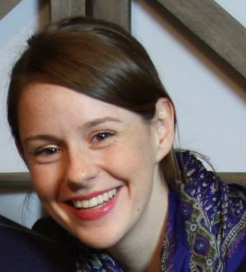 Jane Seymour, MPH is a doctoral student in the Department of Epidemiology at the Boston University School of Public Health where her work is funded through the Training Program in Reproductive, Perinatal, and Pediatric Epidemiology. Jane’s research focuses on how modifiable social factors, such as literacy, impact women’s reproductive health and how these relationships can be leveraged to improve health outcomes.
Jane Seymour, MPH is a doctoral student in the Department of Epidemiology at the Boston University School of Public Health where her work is funded through the Training Program in Reproductive, Perinatal, and Pediatric Epidemiology. Jane’s research focuses on how modifiable social factors, such as literacy, impact women’s reproductive health and how these relationships can be leveraged to improve health outcomes.
———————————————————————————————————————————————-
Tuesday, November 3, 2015; 10:00am-11:30am
Panel E: Examining Potential for Increasing the Role of Health Literacy in PCORI Funded Programs
Moderator: Terry Davis
 Terry Davis, PhD is a pioneer in the field of Health Literacy. For the past 30 years, she has led an interdisciplinary team investigating the impact of patient literacy on health and healthcare. Seminal achievements include development of the Rapid Estimate of Adult Literacy in Medicine (REALM) and creation of user- friendly patient education and provider training materials that are used nationally.
Terry Davis, PhD is a pioneer in the field of Health Literacy. For the past 30 years, she has led an interdisciplinary team investigating the impact of patient literacy on health and healthcare. Seminal achievements include development of the Rapid Estimate of Adult Literacy in Medicine (REALM) and creation of user- friendly patient education and provider training materials that are used nationally.
Dr. Davis has more than one hundred and thirty publications related to health literacy, health communication, and cancer screening. She has served on Health Literacy Advisory Boards for both the American Medical Association and the American College of Physicians Foundation (ACP-F). She was an independent agent on the IOM Committee on Health Literacy and a developer of the AMA’s Train-the-Trainer Health Literacy Curriculum. Currently she is a member of the Healthy People 2020 Health Literacy/Health Communication Section and serves as a health literacy advisor to the FDA.
Dr. Davis chaired Louisiana’s statewide Health Literacy Task Force, the first legislatively mandated health literacy group in the nation. She received the Louisiana Public Health Association’s Founders Award for Significant Achievement in Public Health Research. As a frequent speaker at national conferences, she has integrated her research findings into practical lessons for providers and policy makers.
Dr. Davis is the Health Literacy Principal Investigator (PI) on an NIH grant for the Louisiana Clinical and Translational Science Center, an unprecedented collaborative effort among eight academic institutions in LA. She is PI on a five year NCI health literacy intervention to increase regular breast and CRC screening among patients in Federally Qualified Health Centers. Building on this work she was recently awarded an ACS grant to evaluate follow-up strategies to improve regular CRC screening in rural clinics in the state. Dr. Davis is also working with investigators at Northwestern and Emory on AHRQ funded studies to improve patient understanding and actual use of prescription medication labels in English and Spanish. Along with a team from the University of North Carolina and University of California-San Francisco she has been funded by the ACP to develop and test practical self-management guides and videos for patients with diabetes, COPD, coronary artery disease, obesity, and rheumatoid arthritis. ACPF has distributed over five million copies of these guides.
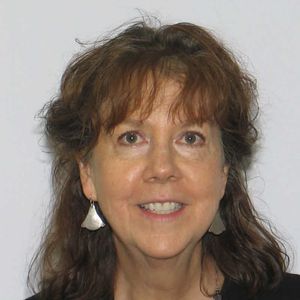 Elizabeth Hahn, MA is a medical sociologist whose research primarily involves patient-reported outcomes (PRO) in chronic illnesses, with a focus on underserved populations and health disparities. She received funding from AHRQ, NCI, ACS and NHLBI to develop a bilingual, multimedia Talking Touchscreen (Pantalla Parlanchina) that allows patients with varying literacy levels and computer skills to self-administer PRO questionnaires and to access patient education information. It has also been adapted for self-administration of a new health literacy measure. Elizabeth is Associate Professor of Medical Social Sciences, Feinberg School of Medicine, Northwestern University, and Director of the Outcomes Measurement and Survey Core, Robert H. Lurie Comprehensive Cancer Center of Northwestern University.
Elizabeth Hahn, MA is a medical sociologist whose research primarily involves patient-reported outcomes (PRO) in chronic illnesses, with a focus on underserved populations and health disparities. She received funding from AHRQ, NCI, ACS and NHLBI to develop a bilingual, multimedia Talking Touchscreen (Pantalla Parlanchina) that allows patients with varying literacy levels and computer skills to self-administer PRO questionnaires and to access patient education information. It has also been adapted for self-administration of a new health literacy measure. Elizabeth is Associate Professor of Medical Social Sciences, Feinberg School of Medicine, Northwestern University, and Director of the Outcomes Measurement and Survey Core, Robert H. Lurie Comprehensive Cancer Center of Northwestern University.
 Jerry A. Krishnan, MD, PhD is a Professor of Medicine and Public Health, and Associate Vice President for Population Health Sciences at the University of Illinois Hospital & Health Sciences System (UI Health). He provides institutional oversight for developing, testing, and implementing clinical practices to improve care and outcomes of UI Health patients. Dr. Krishnan is a national leader in comparative effectiveness research, which seeks to identify what screening, preventative, treatment strategy works to guide healthcare delivery. He is an investigator in National Institutes of Health (AsthmaNet, CHICAGO II) and Patient Centered Outcomes Research Institute (PCORI)-funded multi-investigator groups (PArTNER, PELICAN, CHICAGO Plan, ACHIEVE). He serves as Chair of the NIH/NHLBI Clinical Trials review committee, and PCORI Improving Healthcare Systems merit review panel.
Jerry A. Krishnan, MD, PhD is a Professor of Medicine and Public Health, and Associate Vice President for Population Health Sciences at the University of Illinois Hospital & Health Sciences System (UI Health). He provides institutional oversight for developing, testing, and implementing clinical practices to improve care and outcomes of UI Health patients. Dr. Krishnan is a national leader in comparative effectiveness research, which seeks to identify what screening, preventative, treatment strategy works to guide healthcare delivery. He is an investigator in National Institutes of Health (AsthmaNet, CHICAGO II) and Patient Centered Outcomes Research Institute (PCORI)-funded multi-investigator groups (PArTNER, PELICAN, CHICAGO Plan, ACHIEVE). He serves as Chair of the NIH/NHLBI Clinical Trials review committee, and PCORI Improving Healthcare Systems merit review panel.
Martha Lutz
————————————————————————————————————————————————
Panel F: The Role of Health Literacy in Engaging Target Populations for Developing and Evaluating Health Care Interventions
Moderator: Raymond Ownby
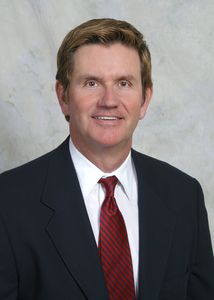 Raymond Ownby. MD is Professor and Chair of the Department of Psychiatry and Behavioral Medicine at Nova Southeastern University where he is also a Professor in the Public Health and Biomedical Informatics Programs. Dr. Ownby has a long-standing interest in patient-provider communication and computer applications in healthcare. Dr. Ownby was the principal investigator of the FLIGHT/VIDAS project (R01HL 096578) which developed and validated a new computer-administered measure of health literacy in English and Spanish that is now available for use.
Raymond Ownby. MD is Professor and Chair of the Department of Psychiatry and Behavioral Medicine at Nova Southeastern University where he is also a Professor in the Public Health and Biomedical Informatics Programs. Dr. Ownby has a long-standing interest in patient-provider communication and computer applications in healthcare. Dr. Ownby was the principal investigator of the FLIGHT/VIDAS project (R01HL 096578) which developed and validated a new computer-administered measure of health literacy in English and Spanish that is now available for use.
Speakers:
Susan Bakken
 Kirsten McCaffery, PhD is a behavioural scientist at the School of Public Health at the University of Sydney Medical School. She has a national and international reputation for her psychosocial research in the fields of Screening, Shared Decision Making and Health Literacy. As a health psychologist, Professor McCaffery’s research covers three themes: (a) investigating the psychosocial impact of screening and testing; (b) health literacy research; and (c) shared health decision-making. “I am interested in understanding the psychological harms associated with screening programs”, she says. “Consequently, I am also interested in patient communication and the process of shared health decision-making, which in turn has paved the way for my research on health communication in people with low health literacy”. Professor McCaffery’s studies on the psychosocial consequences of Human Papilloma Virus (HPV) testing and vaccination have informed policy on communication relating to HPV testing and on the introduction of HPV vaccination in the UK and Australia. She developed the first decision aid relating to bowel cancer screening, for adults with low education and literacy, which increased informed choice in bowel cancer screening. Additionally, she has developed the first patient decision aid that includes information on overdetection, to support informed choice in breast cancer screening (Lancet 2015). Professor McCaffery is academic lead of the International Health Literacy Research Network and leads the Health Literacy Node at the Charles Perkins Centre at the University of Sydney, and the Psychosocial Research Group of the Screening and Diagnostic Test Evaluation Program (STEP) at the Sydney School of Public Health.
Kirsten McCaffery, PhD is a behavioural scientist at the School of Public Health at the University of Sydney Medical School. She has a national and international reputation for her psychosocial research in the fields of Screening, Shared Decision Making and Health Literacy. As a health psychologist, Professor McCaffery’s research covers three themes: (a) investigating the psychosocial impact of screening and testing; (b) health literacy research; and (c) shared health decision-making. “I am interested in understanding the psychological harms associated with screening programs”, she says. “Consequently, I am also interested in patient communication and the process of shared health decision-making, which in turn has paved the way for my research on health communication in people with low health literacy”. Professor McCaffery’s studies on the psychosocial consequences of Human Papilloma Virus (HPV) testing and vaccination have informed policy on communication relating to HPV testing and on the introduction of HPV vaccination in the UK and Australia. She developed the first decision aid relating to bowel cancer screening, for adults with low education and literacy, which increased informed choice in bowel cancer screening. Additionally, she has developed the first patient decision aid that includes information on overdetection, to support informed choice in breast cancer screening (Lancet 2015). Professor McCaffery is academic lead of the International Health Literacy Research Network and leads the Health Literacy Node at the Charles Perkins Centre at the University of Sydney, and the Psychosocial Research Group of the Screening and Diagnostic Test Evaluation Program (STEP) at the Sydney School of Public Health.
Neely Williams
————————————————————————————————————————————————
Tuesday, November 3, 2015; 12:30pm-2:00pm
Panel G: Accessible and effective perinatal care for women with low health literacy skills: Intervention development, implementation and evaluation
Moderator: Brian Penti
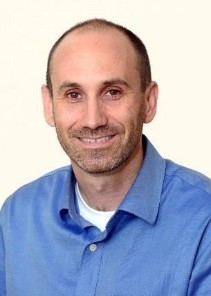 Brian Penti MD, Assistant Professor at Boston University School of Medicine (BUSM), Department of Family Medicine. Currently enrolled in the BUSM Primary Care Academic Research Fellowship, with a focus on issues related to health literacy, preconception care, health disparities, intimate partner violence, and safety of opioid prescribing.
Brian Penti MD, Assistant Professor at Boston University School of Medicine (BUSM), Department of Family Medicine. Currently enrolled in the BUSM Primary Care Academic Research Fellowship, with a focus on issues related to health literacy, preconception care, health disparities, intimate partner violence, and safety of opioid prescribing.
Speakers:
 Denise Charron-Prochownik, PhD, CPNP, RN, FAAN is a Professor at the Schools of Nursing and Graduate School of Public Health at the University of Pittsburgh, and Chairman of the Department of Health Promotion and Development at the Schools of Nursing. She was trained as a behavioral scientist in public health. She has conducted several funded projects in the area of instrumentation, program development and evaluation, and survey designs. Her research emphasis, evolving from her clinical experience as a pediatric diabetes clinical nurse specialist, is in the field of theory-based technology delivered interventions in applied behavioral science, with a focus on enhancing reproductive health in ethnically diverse adolescent girls with diabetes. She has received funding from the NIH and ADA for her program of research called READY-Girls which a theory-based online info-tech preconception counseling intervention targeting teens with diabetes.
Denise Charron-Prochownik, PhD, CPNP, RN, FAAN is a Professor at the Schools of Nursing and Graduate School of Public Health at the University of Pittsburgh, and Chairman of the Department of Health Promotion and Development at the Schools of Nursing. She was trained as a behavioral scientist in public health. She has conducted several funded projects in the area of instrumentation, program development and evaluation, and survey designs. Her research emphasis, evolving from her clinical experience as a pediatric diabetes clinical nurse specialist, is in the field of theory-based technology delivered interventions in applied behavioral science, with a focus on enhancing reproductive health in ethnically diverse adolescent girls with diabetes. She has received funding from the NIH and ADA for her program of research called READY-Girls which a theory-based online info-tech preconception counseling intervention targeting teens with diabetes.
 Mirjam Fransen PhD is a postdoctoral researcher at the Department of Public Health of the AMC/ University of Amsterdam, The Netherlands. Her research interests lie in the field of health promotion, health education, and systematic intervention development, with a focus on deprived populations (non-Western ethnic background, low socio-economic status, low health literacy). She currently leads research projects on health literacy and the accessibility of preconception care; health literacy and informed decision-making in colorectal cancer screening; and donor recruitment and retention in ethnic minority populations. She is steering group member of the Dutch Alliance for Health Literacy and leader of the working group for health literacy research in the Netherlands.
Mirjam Fransen PhD is a postdoctoral researcher at the Department of Public Health of the AMC/ University of Amsterdam, The Netherlands. Her research interests lie in the field of health promotion, health education, and systematic intervention development, with a focus on deprived populations (non-Western ethnic background, low socio-economic status, low health literacy). She currently leads research projects on health literacy and the accessibility of preconception care; health literacy and informed decision-making in colorectal cancer screening; and donor recruitment and retention in ethnic minority populations. She is steering group member of the Dutch Alliance for Health Literacy and leader of the working group for health literacy research in the Netherlands.
Sandra Smith
————————————————————————————————————————————————
Panel H: Health literacy interventions: bench to bedside to community and beyond opportunities
Moderator: Cathy Meade
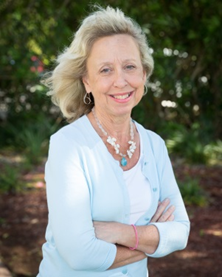 Dr. Cathy Meade is a “community-minded researcher.” She is Professor and Senior Member in Moffitt Cancer Center’s Division of Population Science, Health Outcomes and Behavior, and is a national leader in the field of health disparities, health literacy, and cancer communications. She is especially interested in the role that culture and literacy play in the development and design of behavioral interventions. She has led a wide variety of education, training and research activities at the cancer center, and is currently Co-PI of the Tampa Bay Community Cancer Network (TBCCN), a network of over 23 community organizations, that work together to address critical access, education, and prevention issues among medically underserved populations. She has been involved in a number of projects that span cancer prevention to survivorship, and which have brought information, services and scientific advancements back to the community. For example, studies that aim to: increase colorectal cancer screening uptake; understand community members’ perceptions about biobanking (biospecimen donation); promote early diagnosis and timely delivery of breast health services using patient navigators; provide smoking cessation interventions for dual users of tobacco cigarettes and electronic cigarettes; adapt an Internet-assisted form of cognitive-behavior therapy to reduce post-treatment cancer-related fatigue for patients with CML; determine the utility of a self- administered stress management program for Latinas who are starting chemotherapy; evaluate a Lay Health Ambassador Training program (Embajadoras de Salud Entrenamiento) for improving Hispanic farmworker knowledge and uptake of the Pap Test, to name a few.
Dr. Cathy Meade is a “community-minded researcher.” She is Professor and Senior Member in Moffitt Cancer Center’s Division of Population Science, Health Outcomes and Behavior, and is a national leader in the field of health disparities, health literacy, and cancer communications. She is especially interested in the role that culture and literacy play in the development and design of behavioral interventions. She has led a wide variety of education, training and research activities at the cancer center, and is currently Co-PI of the Tampa Bay Community Cancer Network (TBCCN), a network of over 23 community organizations, that work together to address critical access, education, and prevention issues among medically underserved populations. She has been involved in a number of projects that span cancer prevention to survivorship, and which have brought information, services and scientific advancements back to the community. For example, studies that aim to: increase colorectal cancer screening uptake; understand community members’ perceptions about biobanking (biospecimen donation); promote early diagnosis and timely delivery of breast health services using patient navigators; provide smoking cessation interventions for dual users of tobacco cigarettes and electronic cigarettes; adapt an Internet-assisted form of cognitive-behavior therapy to reduce post-treatment cancer-related fatigue for patients with CML; determine the utility of a self- administered stress management program for Latinas who are starting chemotherapy; evaluate a Lay Health Ambassador Training program (Embajadoras de Salud Entrenamiento) for improving Hispanic farmworker knowledge and uptake of the Pap Test, to name a few.
Speakers:
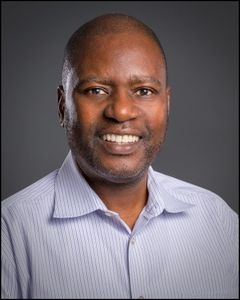 Clement K. Gwede, PhD, MPH, RN is an Associate Member in the Department of Health Outcomes and Behavior at Moffitt Cancer Center and an Associate Professor in the Department of Oncologic Sciences in the College of Medicine at the University of South Florida. He is also Associate Director of Diversity at Moffitt Cancer Center. He is Co-Director of Tampa Bay Community Cancer Network (TBCCN) initiative at Moffitt, a Community Network Program Center (CNPC) funded by the National Cancer Institute to reduce cancer health disparities through community-academic partnerships, research, training and community outreach & education. Dr. Gwede has 15 years of experience in behavioral-population science research since obtaining his Ph.D. in Public Health. His primary research interests and expertise include community-based participatory research, minority participation in clinical trial trials, and health disparities research using culturally relevant multi-component interventions to increase use of beneficial cancer screening tests and reduce disparities among racial-ethnic minorities and underserved subgroups. Current research projects include three community-based intervention studies funded by the American Cancer Society, National Cancer Institute and State of Florida, and conducted in various community settings and in federally qualified health centers to address disparities in colorectal cancer screening. As such Dr. Gwede is knowledgeable and highly published in the implementation of literacy appropriate cancer interventions in various community-based settings.
Clement K. Gwede, PhD, MPH, RN is an Associate Member in the Department of Health Outcomes and Behavior at Moffitt Cancer Center and an Associate Professor in the Department of Oncologic Sciences in the College of Medicine at the University of South Florida. He is also Associate Director of Diversity at Moffitt Cancer Center. He is Co-Director of Tampa Bay Community Cancer Network (TBCCN) initiative at Moffitt, a Community Network Program Center (CNPC) funded by the National Cancer Institute to reduce cancer health disparities through community-academic partnerships, research, training and community outreach & education. Dr. Gwede has 15 years of experience in behavioral-population science research since obtaining his Ph.D. in Public Health. His primary research interests and expertise include community-based participatory research, minority participation in clinical trial trials, and health disparities research using culturally relevant multi-component interventions to increase use of beneficial cancer screening tests and reduce disparities among racial-ethnic minorities and underserved subgroups. Current research projects include three community-based intervention studies funded by the American Cancer Society, National Cancer Institute and State of Florida, and conducted in various community settings and in federally qualified health centers to address disparities in colorectal cancer screening. As such Dr. Gwede is knowledgeable and highly published in the implementation of literacy appropriate cancer interventions in various community-based settings.
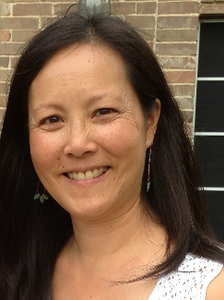 Carol J. Howe, PhD, RN, CDE is an Assistant Professor in Nursing at Texas Christian University. Her research has examined and explored the facilitators and barriers to diabetes self-care in children. While at the Diabetes Center at The Children’s Hospital of Philadelphia, Dr. Howe conducted studies on needle fear, eating disorders, phone case management, and parent-provider communication. Her doctoral research examined the relationship between parent health literacy and communication with diabetes educators using a mixed methods design. Dr. Howe’s research interest in health literacy and patient education builds upon her 22 years as a clinical nurse specialist, a diabetes educator, and as writer/editor of patient education materials with attention to health literacy.
Carol J. Howe, PhD, RN, CDE is an Assistant Professor in Nursing at Texas Christian University. Her research has examined and explored the facilitators and barriers to diabetes self-care in children. While at the Diabetes Center at The Children’s Hospital of Philadelphia, Dr. Howe conducted studies on needle fear, eating disorders, phone case management, and parent-provider communication. Her doctoral research examined the relationship between parent health literacy and communication with diabetes educators using a mixed methods design. Dr. Howe’s research interest in health literacy and patient education builds upon her 22 years as a clinical nurse specialist, a diabetes educator, and as writer/editor of patient education materials with attention to health literacy.
 Jennifer Innis is studying the use of health literate discharge practices, discharge practices that are based on Project RED (Re-Engineered Discharge), and that meet the health literacy needs of patients and families. She is a PhD candidate in Health Services Research at the Institute of Health Policy, Management and Evaluation at the University of Toronto, as well as a nurse practitioner in the trauma/neurosurgery program at St Michael’s Hospital in Toronto. Her research is funded by a doctoral research award from the Canadian Institutes of Health Research.
Jennifer Innis is studying the use of health literate discharge practices, discharge practices that are based on Project RED (Re-Engineered Discharge), and that meet the health literacy needs of patients and families. She is a PhD candidate in Health Services Research at the Institute of Health Policy, Management and Evaluation at the University of Toronto, as well as a nurse practitioner in the trauma/neurosurgery program at St Michael’s Hospital in Toronto. Her research is funded by a doctoral research award from the Canadian Institutes of Health Research.
Darcel Reyes
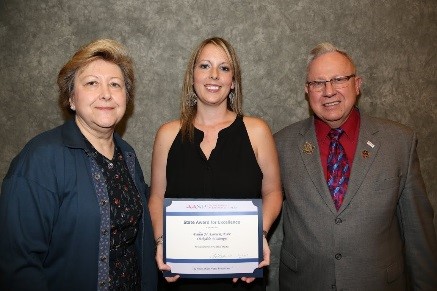 Dr. Linda Watkins, emergency nurse practitioner at the Jackson Veterans Affairs Medical Center, earned a Bachelor of Science and a Masters of Science in Psychology at University of Tennessee, Knoxville, and a Bachelor of Science of Nursing from the University of Maryland, Baltimore. She graduated with highest honors and a Masters of Nursing Degree from the University of Mississippi and received the Graduate of the Year award and an appointment as adjunct faculty. In 2012 she earned a Doctorate of Nursing Practice at the University of Alabama at Birmingham. Dr. Watkins has served as a staff nurse in the emergency department, intensive care unit, and nursing supervisor at several hospitals, including in St. Louis, Washington D. C., and Jackson, Mississippi. In 2002 Dr. Watkins accepted a nurse practitioner position in Jackson. In this role she not only practices as a clinician in the emergency department, but also functions as a preceptor for other advanced practice nurses. She serves as a clinical preceptor to advanced practice nurses providing clinical experience related to acute and acute on chronic disease management, quality assurance issues, and patient safety. In 2004 Dr. Watkins received the Nurse Practitioner of the Year Award for her care in the emergency department and her collaboration with colleagues. She has served as a Delegate to the Mississippi State Nurses Convention, and currently is the Director of the Mississippi Advanced Practice Council and is the Mississippi State Representative to the American Academy of Nurse Practitioners National Organization. Dr. Watkins provides professional presentations locally, statewide and nationally, with emphasis on health promotion and disease prevention, patient safety, health literacy, and cost-effective care with improved outcomes. Dr. Watkins’ clinical research on Hand-off Communication from the Emergency Department to Primary Care published in the Advanced Practice Emergency Nurses Journal and accepted into the Institute of Innovation. Dr. Watkins’ practice in continuity of patient care has been recognized by Secretary of Veteran Affairs.
Dr. Linda Watkins, emergency nurse practitioner at the Jackson Veterans Affairs Medical Center, earned a Bachelor of Science and a Masters of Science in Psychology at University of Tennessee, Knoxville, and a Bachelor of Science of Nursing from the University of Maryland, Baltimore. She graduated with highest honors and a Masters of Nursing Degree from the University of Mississippi and received the Graduate of the Year award and an appointment as adjunct faculty. In 2012 she earned a Doctorate of Nursing Practice at the University of Alabama at Birmingham. Dr. Watkins has served as a staff nurse in the emergency department, intensive care unit, and nursing supervisor at several hospitals, including in St. Louis, Washington D. C., and Jackson, Mississippi. In 2002 Dr. Watkins accepted a nurse practitioner position in Jackson. In this role she not only practices as a clinician in the emergency department, but also functions as a preceptor for other advanced practice nurses. She serves as a clinical preceptor to advanced practice nurses providing clinical experience related to acute and acute on chronic disease management, quality assurance issues, and patient safety. In 2004 Dr. Watkins received the Nurse Practitioner of the Year Award for her care in the emergency department and her collaboration with colleagues. She has served as a Delegate to the Mississippi State Nurses Convention, and currently is the Director of the Mississippi Advanced Practice Council and is the Mississippi State Representative to the American Academy of Nurse Practitioners National Organization. Dr. Watkins provides professional presentations locally, statewide and nationally, with emphasis on health promotion and disease prevention, patient safety, health literacy, and cost-effective care with improved outcomes. Dr. Watkins’ clinical research on Hand-off Communication from the Emergency Department to Primary Care published in the Advanced Practice Emergency Nurses Journal and accepted into the Institute of Innovation. Dr. Watkins’ practice in continuity of patient care has been recognized by Secretary of Veteran Affairs.
